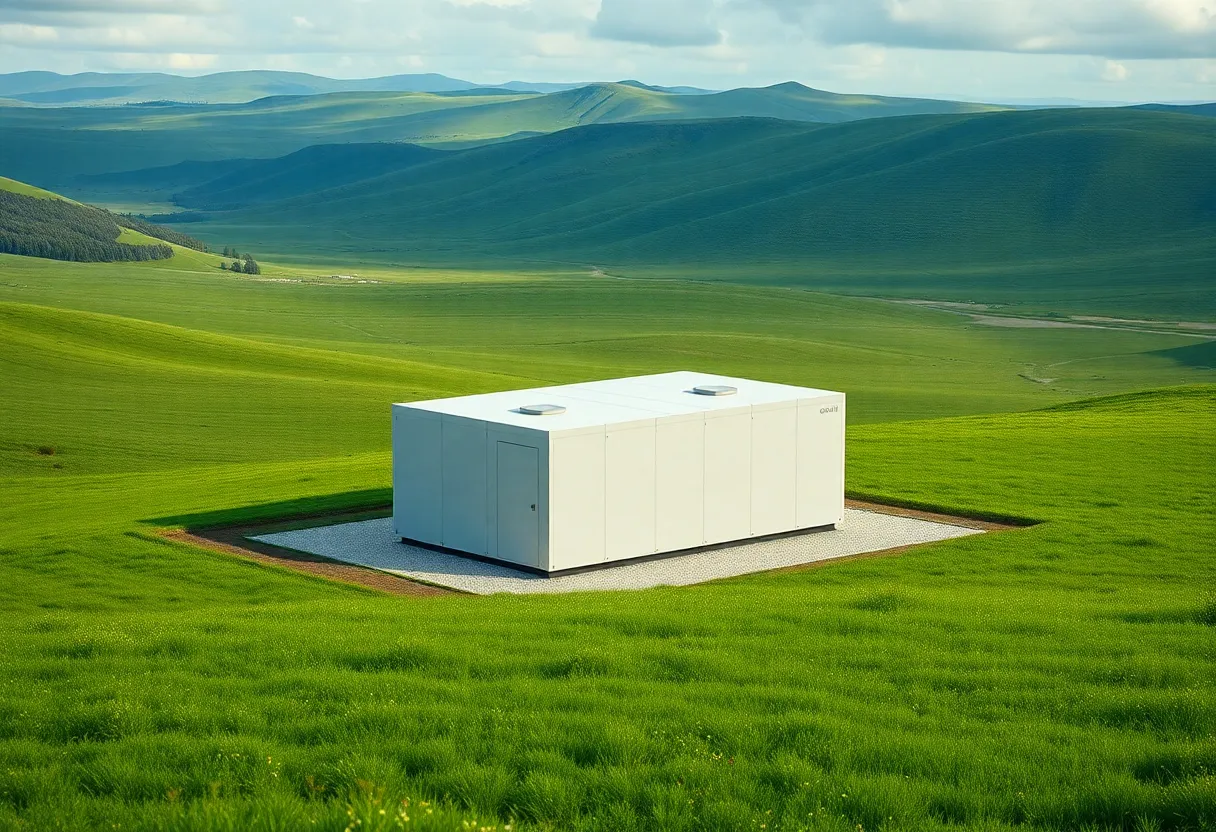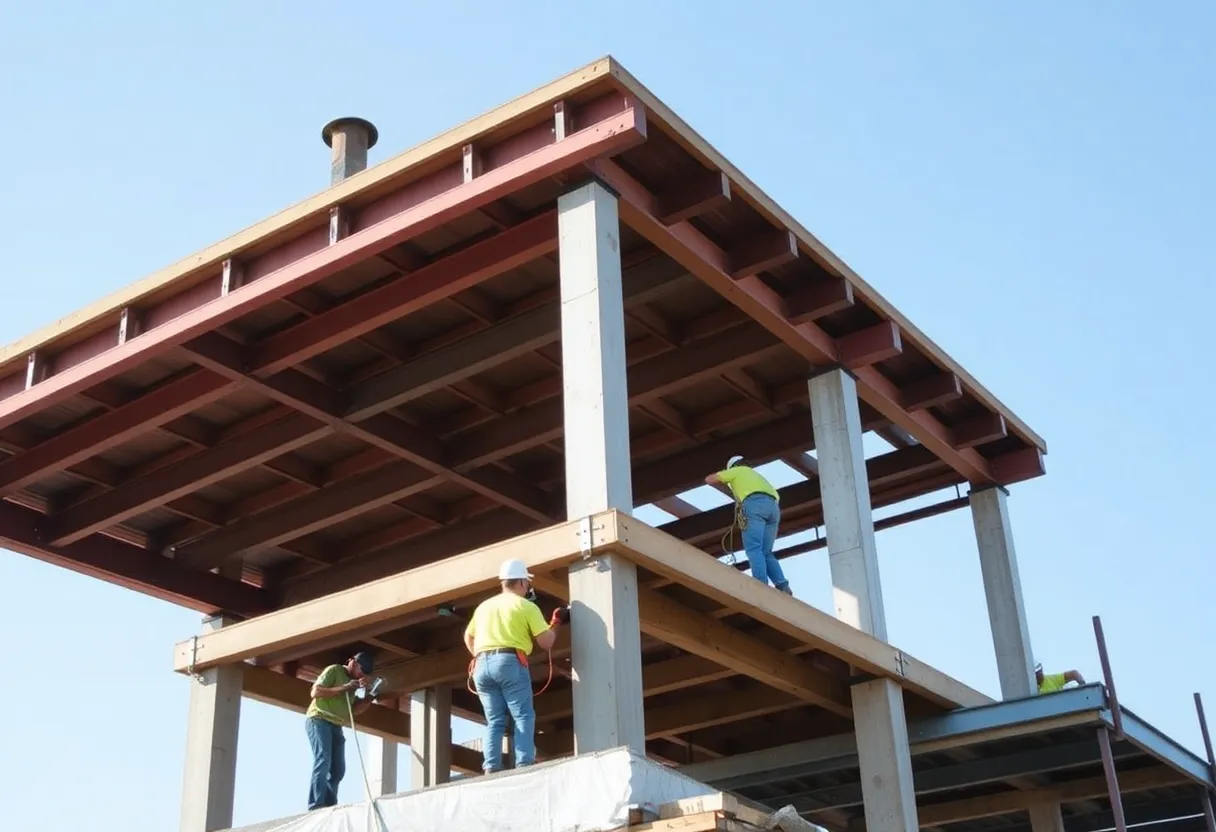News Summary
Ukraine’s Energy Ministry is actively considering partnerships with the United States to construct small nuclear plants to strengthen energy security amidst global tensions. This initiative focuses on small modular reactors that promise faster deployment and cost-efficiency, although challenges like regulatory hurdles and public opposition persist. The move reflects a broader global trend towards adopting advanced nuclear technology as a sustainable energy solution. As discussions progress, the balance between innovation and safety remains crucial to ensure alignment with environmental and community concerns.
Kyiv – Ukraine Explores US Partnerships for Small Nuclear Plants
Ukraine’s Energy Ministry is actively considering partnerships with the United States to build small nuclear plants, aiming to enhance energy security amid ongoing global tensions. This development, reported in recent days, highlights a potential shift toward advanced nuclear technology for quicker deployment and cost savings, though challenges like regulatory hurdles and public concerns persist.
The initiative focuses on small modular reactors, which offer benefits such as faster construction times and reduced expenses compared to traditional nuclear facilities. In the United States, these reactors are already under development, with states like Tennessee advancing their own projects. Ukraine’s exploration of this technology could lead to international cooperation, potentially involving US firms in exporting expertise and materials.
Supporting this effort, US policymakers are currently reviewing bill proposals that align with such international collaborations. These proposals aim to streamline regulations while addressing safety and environmental issues. However, opposition from environmental groups remains a significant factor, as they point to risks associated with nuclear waste and potential environmental impacts. Proponents argue that the technology could significantly lower emissions, contributing to global energy resilience.
In the broader context, this move by Ukraine reflects a growing global trend toward adopting small modular reactors as a viable alternative to conventional energy sources. Reports from October 10, 2025, emphasize American expertise in this area, which could influence domestic adoption in Ukraine. Meanwhile, on October 13, 2025, discussions in the US highlight how these reactors promise efficiency and scalability, potentially setting a precedent for worldwide energy strategies.
Background details reveal that small nuclear plants are designed for modular construction, allowing for easier assembly and operation. In the US, projects in states like Tennessee demonstrate practical applications, with construction underway using advanced designs from companies specializing in nuclear technology. Despite the advantages, challenges such as navigating regulatory approvals and managing public perceptions of nuclear energy continue to pose obstacles. This partnership could not only strengthen Ukraine’s energy infrastructure but also foster technological exchanges that enhance global security in an era of geopolitical uncertainty.
The potential benefits include improved energy independence for Ukraine, reducing reliance on traditional fossil fuels and supporting sustainable development goals. With tensions influencing energy policies worldwide, this collaboration underscores the strategic importance of innovative nuclear solutions. As discussions progress, the focus remains on balancing innovation with safety, ensuring that any advancements prioritize environmental and community concerns.
Further, the involvement of US entities could accelerate the global adoption of these reactors, as their compact design allows for deployment in various settings, from urban areas to remote locations. This approach contrasts with larger traditional reactors, which often face longer timelines and higher costs. Ukraine’s contemplation of this technology signals a proactive response to energy needs, drawing on US successes to inform their strategy.
Overall, this development represents a key step in international energy cooperation, with potential long-term impacts on how countries address energy security and sustainability. The emphasis on small modular reactors highlights their role in modern energy systems, offering a pathway to reduced emissions and enhanced reliability.
Word count: 512
FAQ
Frequently Asked Questions
Q1: What is Ukraine exploring with the United States?
A1: Ukraine’s Energy Ministry is exploring US partnerships for small nuclear plant construction to bolster energy security, amid global tensions.
Q2: What are the benefits of small modular reactors?
A2: These compact units promise faster deployment and lower costs compared to traditional reactors.
Q3: What challenges are associated with this technology?
A3: Regulatory hurdles and public opposition over nuclear waste remain significant challenges.
Q4: What are US policymakers doing?
A4: US policymakers are evaluating bill proposals that align with international co-ops.
Q5: What do environmentalists and proponents say?
A5: Environmentalists clash, citing risks, but proponents claim reduced emissions.
Q6: What does this signal globally?
A6: Ukraine’s contemplation signals a trend, with US firms like Westinghouse potentially exporting technology, enhancing energy resilience worldwide.
Key Features Chart
| Feature | Description |
|---|---|
| Deployment Speed | Faster deployment compared to traditional reactors |
| Cost Efficiency | Lower costs for construction and operation |
| Environmental Impact | Reduced emissions, but risks from nuclear waste |
| Regulatory Challenges | Hurdles in approvals and public opposition |
| Global Trend | Signals enhanced energy resilience worldwide |
Deeper Dive: News & Info About This Topic
Construction FL Resources
Author: Construction FL News
The FLORIDA STAFF WRITER represents the experienced team at constructionflnews.com, your go-to source for actionable local news and information in Florida and beyond. Specializing in "news you can use," we cover essential topics like product reviews for personal and business needs, local business directories, politics, real estate trends, neighborhood insights, and state news affecting the area—with deep expertise drawn from years of dedicated reporting and strong community input, including local press releases and business updates. We deliver top reporting on high-value events such as the Florida Build Expo, major infrastructure projects, and advancements in construction technology showcases. Our coverage extends to key organizations like the Associated Builders and Contractors of Florida and the Florida Home Builders Association, plus leading businesses in construction and legal services that power the local economy such as CMiC Global and Shutts & Bowen LLP. As part of the broader network, including constructioncanews.com, constructionnynews.com, and constructiontxnews.com, we provide comprehensive, credible insights into the dynamic construction landscape across multiple states.





